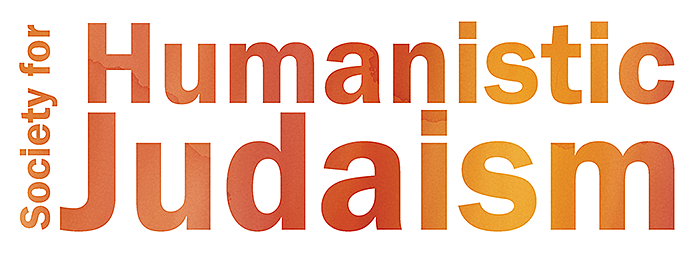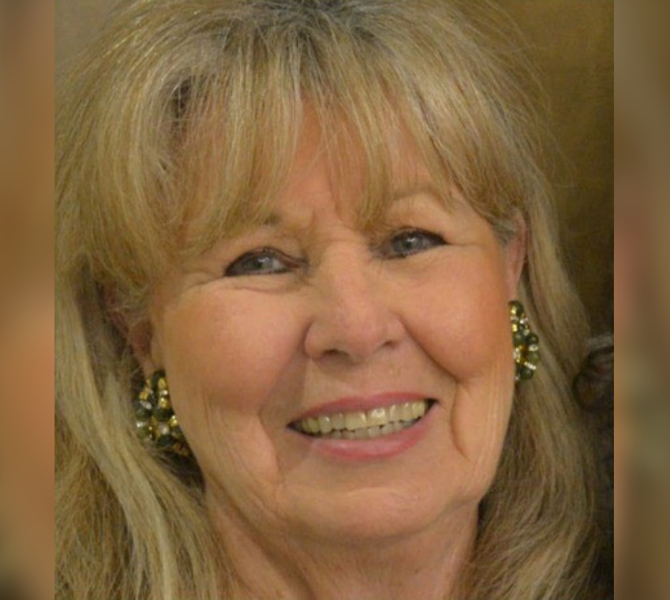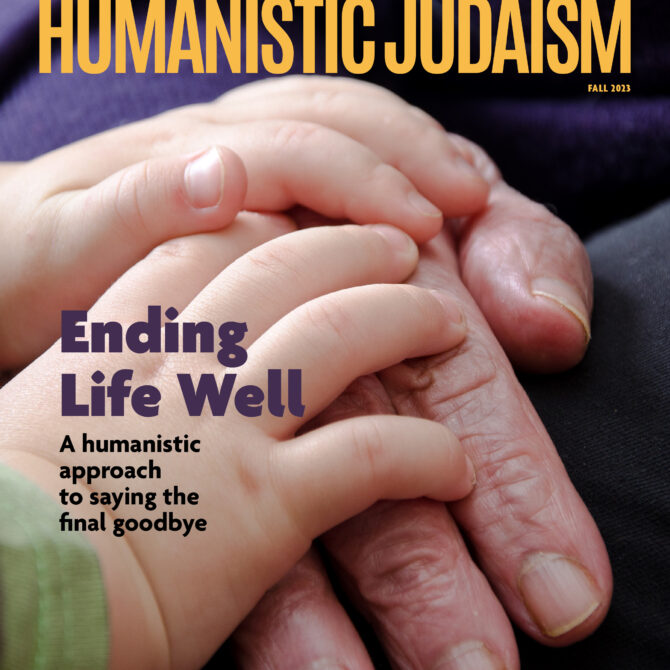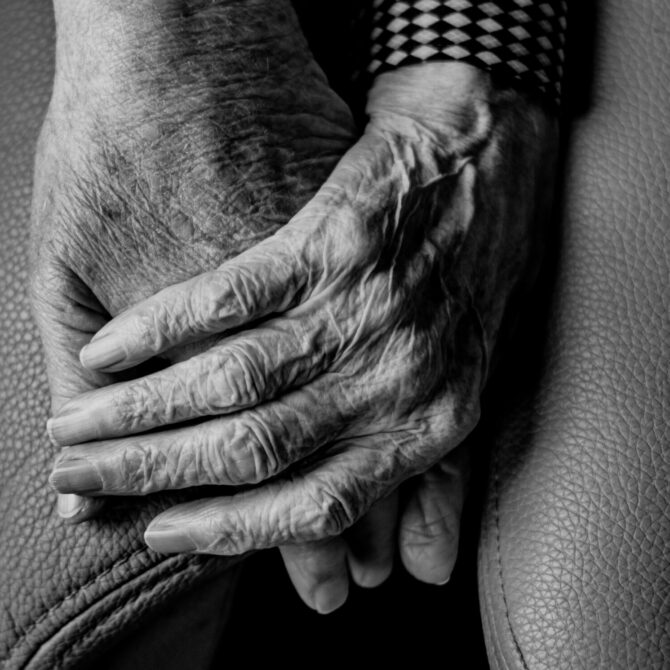What We Believe
Humanistic Judaism approaches end of life in the same way it approaches life: realistically. We recognize that:
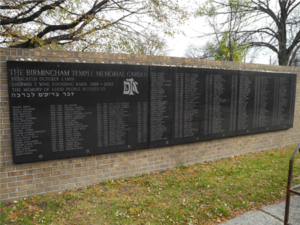 The existence of all living beings is finite, and scientists have discovered no evidence that justifies belief in a life hereafter.
The existence of all living beings is finite, and scientists have discovered no evidence that justifies belief in a life hereafter.- Although death may be painful and tragic for those who survive, death is a part of all lives.
- It is important to respect the intelligence and feelings of mourners by acknowledging their feelings of sadness and grief, disbelief, shock, or anger, rather than pretending that a wonderful benefit has befallen the deceased or that the time of the death was part of some incomprehensible divine plan.
- The best way to respect the deceased is through a ceremony that celebrates the person’s life and remembers ways in which the deceased’s actions can inspire our own future actions.
- The consequence of adopting the Humanistic view of death is the knowledge that all possible purpose and meaning is and must be achieved in this world and in this life.
For more information on Funerals and Memorial Services and Mourning Practices click here.
Other End of Life Considerations
Assisted Suicide
Just as Humanistic Judaism encourages and seeks to secure life with dignity, it encourages and seeks to secure death with dignity. Humanistic ethics oppose the cruel and inhuman notion that human beings must be kept breathing as long as possible, regardless of the circumstances and the person’s own fervent wish to be relieved of their pain and suffering.
The SHJ has adopted a statement supporting physician-assisted death that “affirms that mentally competent adults with irreversible, terminal medical conditions accompanied by intense suffering should have the right to physician assistance in dying.” In an earlier statement supporting advance directives, the SHJ “urges every person to compose a binding document (living will, advance directive) to ensure that all loved ones, close family members, and medical personnel will carry out his or her decision, and affirms that no one should have the right or authority to interfere with a personal choice regarding decisions about the ending of one’s own life.” Of course individual state laws apply.
Organ or Body Donation
Because Humanistic Judaism encourages any medical measure whereby the body of a deceased person is used to save the life or improve the health of a living person, Humanistic Judaism is in favor of the donation of organs and other body parts for transplantation surgery.
Autopsy
Although Jewish law does not prohibit the practice of autopsy, an attitude prevails among many Jews today that it constitutes disfiguring and dishonoring the dead and therefore should not be permitted. Humanistic Jews disagree. Since the purpose of autopsy is to provide information that may help to save others’ lives and improve health, there are no Humanistic grounds for prohibiting it and many reasons to endorse the practice.
.
